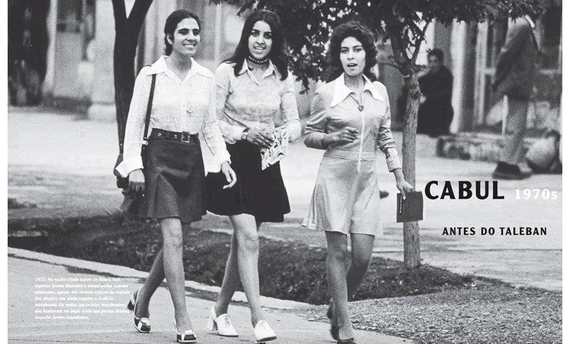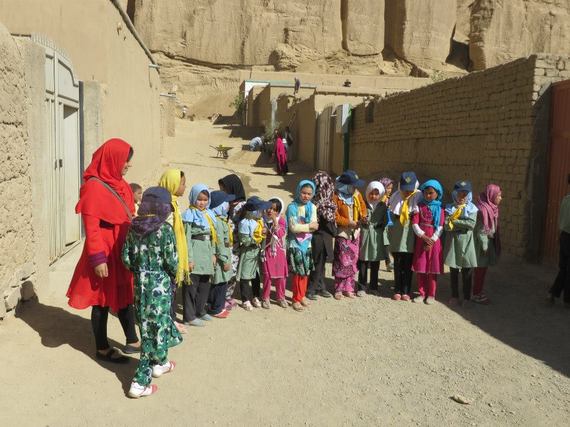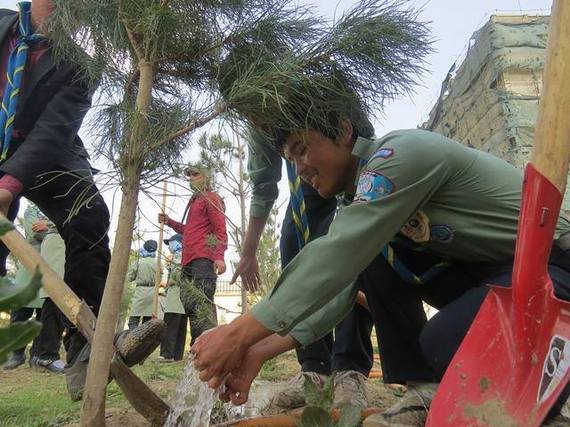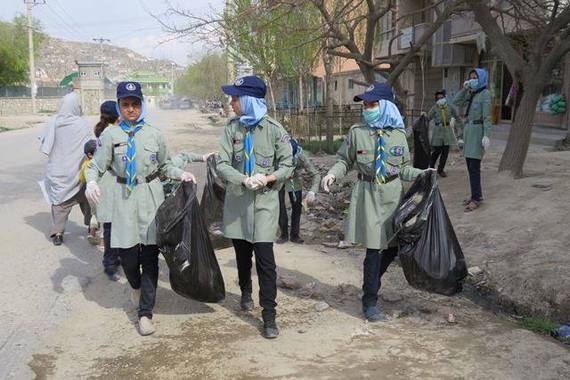
No single person is accountable for Afghanistan and the state of its people. But every one of us is accountable for the perceptions that directly affect how the country moves forward.
I was born in Afghanistan, raised in Canada, and have come back to Afghanistan for the past decade. It doesn't make me an authority on anything, but allows me to be a first hand witness to what Afghans see and what people abroad see - and its safe to say that most everyone sees negative. The media provides very little but the bad news surrounding Afghanistan. Anyone who tries to speak out by acknowledging the other side to the story (myself included) is usually challenged as naive, unrealistic, and essentially wrong.
The problem is not only with international media. They look for horrible news and for the most part ignore progress and perseverance. They always have and it's nothing exclusive to Afghanistan. But how do Afghans handle the perceptions of their country? From Afghans both inside and outside of the country, I rarely hear anything said or written about Afghanistan that doesn't start with words like "decades of consecutive war." And this is true. It has become our defining fact that there has been constant fighting here.
Unfortunately, even our idea of "positive" Afghan news often fails to focus on our possibilities for the future. There is a generation that remembers "the glory days" of the 50s to the early 80s. This generation thrived in Afghanistan and most reference to anything positive about Afghanistan refers to them and their time. The women wore whatever they wanted (yes, even short skirts). They studied what they wanted. Hippie tourists walked the streets. JFK came to visit. Even Vogue magazine did a feature on Afghan style. And the children of those who tell these tales wish they had been able to see it. We live through their nostalgia. We're so in awe that Afghanistan ever had these things and we want to hear about it constantly, sharing it with our peers who may think Afghanistan is the "dustbowl" mass media claims it to be. By all means I encourage us to share this truth as well as remember it fondly. It's important to remember that until very recently, this country was a different world. But at the same time... let's get over it.
There is an entirely new generation of brilliant and capable young people that need us to change the narrative and acknowledge their strength. They need us to believe in them as capable and worthy of taking over the role of rebuilding the country. We are entitled to remember the glory days fondly - but at what cost? Because our attitude, that nothing besides those days could ever be positive, does not foster future leaders. It creates an angry generation that does not live up to its potential. It invites us to feel nostalgic which is good, but also defeated, bitter, and unfocused on the future.
I have worked with children in Afghanistan for nearly ten years. I have seen a change that is hard to put into words. Young people are confident and involved. They have something to say and they know what they will no longer stand for. I get to see this as part of my job.
In the next few weeks, with my team in Afghanistan, our children's television show will be making its debut on Tolo TV, Afghanistan's most popular channel. It's a reality show, in that it shows the actuality of children's lives in Afghanistan. We travel around the country meeting children with different accents and facial features who represent a myriad of cultures and customs. The children tell us what they want to be in the future, what their messages are for future generations, and how they currently strive to better themselves and their communities.
It's an incredibly enjoyable time for those involved but by no means is it rosy. 90% of the children featured on our show are orphans. You'll see that many don't have clothes that fit them right or much to eat. Many work all day in the streets for the equivalent of a dollar to feed huge families. And of course some have no family to speak of. But that's the part of the story you already knew - and it's only part of the big picture. The Voice of Afghan Youth show highlights their actions, their views and their hopes. The work they do serving their communities is what you would expect from elite groups who reach out to the poor to "stay connected" and "give back". Meanwhile, these children are the poor and want to be a part of the rebuilding.
I already know firsthand how a child's face lights up when he's interviewed about his views and asked about his hopes for the future. What I'm curious about is how this show, or any other real glimpse into life here, will be received by adults. We are showing you the current reality of Afghanistan's children. It's not a group of privileged children. In fact they are some of the worlds most marginalized. And although it would be great if everyone responded with financial support for the challenges they see these kids face, that's not what our mission is. We want you to acknowledge the children as individual human beings with individual strengths and purpose. Can you do that without deciding your role is to pity them? When we show you that there is a strong side to the Afghan story, won't you just shrug and say "poor Afghanistan", because they should have more?
One of the children you'll see in an episode is Mohammad. He's the son of a poor single mother in Afghanistan. He joined the Afghan Scouts program more than five years ago when it was first brought back to the country. Rather than just participate meagerly in the program, Mohammad thrived. As the program progressed he was a symbol of its success. We featured him in multiple segments of the show. He even went to Japan to represent Afghanistan amongst international scouts.
His mother wanted "better" for him. Encouraged by extended family, she decided he should try with a cousin to flee the country and he died on the way, aged 14.
I understand fleeing persecution, economic and security breakdowns and whatever else. But I know that one of the problems with this situation is that a lack of belief, both inside and outside of Afghanistan, leaves little room for our very real potential. I have no doubt that Mohammad was going to become a great leader.
We owe it to the future of this country to support these brilliant children. They are the majority of the population (almost 70% of the country's population is under 25). And there isn't much you need to do, especially from afar. If you just take on the role of a supporter, it will be the encouragement that makes all the difference. Become an ambassador. Tell people around you about the strengths in Afghanistan that you know to be true. When you tell your friends at work that Afghan children have sports teams and do community work as girl scouts and boy scouts, it will stick with them because it's a surprising contrast to what they've heard.
The next time Afghanistan comes up in conversation, they'll have some thing to contribute. And positive word will spread. You're not a news channel but you do have your own circles and can make an impact in them. Take your role seriously. Even if it's at a slow and steady pace, as adults inside and outside of the country increasingly believe in the children of Afghanistan, the future leaders increasingly believe in themselves. They can look back fondly at Afghanistan's past achievements and be proud that they are a part of a new strong future.




